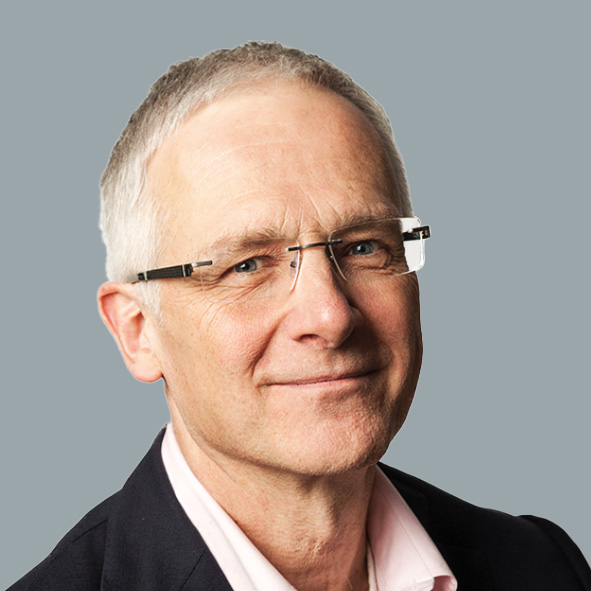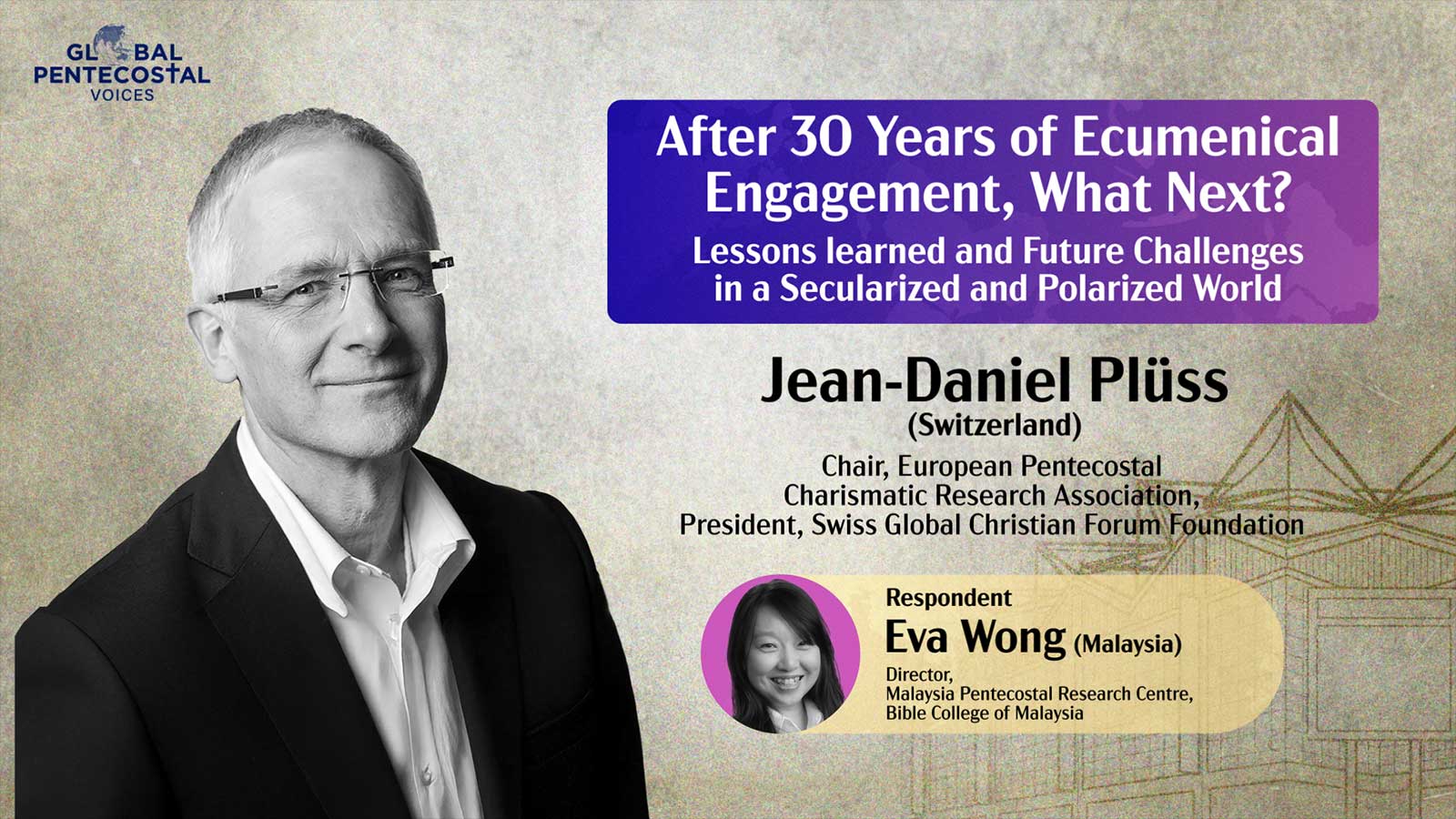Chair, European Pentecostal Charismatic Research Association,
President, Swiss Global Christian Forum Foundation

Jean-Daniel Plüss holds a PhD in religious studies and an MA in Religious Studies from the Catholic University of Leuven, where he focused on the interpretation of narrative elements in worship.
He is the chair of the European Pentecostal Charismatic Research Association and the president of the Swiss Global Christian Forum Foundation. Dr Jean-Daniel has been actively involved in international ecumenical dialogues since 1996, serving as the co-chair for the Pentecostal World Fellowship’s “Lutheran-Pentecostal Dialogue” in 2024. His work in ecumenical dialogues includes interactions with the Catholic Church, the World Alliance of Reformed Churches, and the Global Christian Forum.
As a visiting professor at theological seminaries in Asia and Europe, Dr Jean-Daniel has published extensively on Pentecostalism, including A Guide to Pentecostal Movements for Lutherans (2016). He also serves on the editorial board of the Journal of Pentecostal and Charismatic Christianity. His contributions to promoting understanding and unity across Christian traditions make him a key figure in global church dialogue.

Having been involved in various ecumenical dialogues over the past three decades, I have gained some important insights. Much progress has been made, yet the question remains: How can we, despite our diverse histories and identities, live and function as the Church together? Secularising tendencies in our societies that bring about new challenges, especially in the large urban centres. For the sake of a credible Christian witness, we need to be able to address common concerns together. There are fundamental spiritual desires that are not met in a secular context. The Christian churches have the opportunity to respond to these human yearnings, to a void that is felt, and present the Good News of Jesus Christ in relevant ways. Furthermore, as we live in increasingly pluralistic societies, we witness a growing polarisation of attitudes. This is evident in one-sided nationalist agendas and a discourse rooted in fear. The ecumenical work done so far can serve as a bridge for a common Christian witness “so that the world may believe.”
© 2025 City Harvest Church. All Rights Reserved.